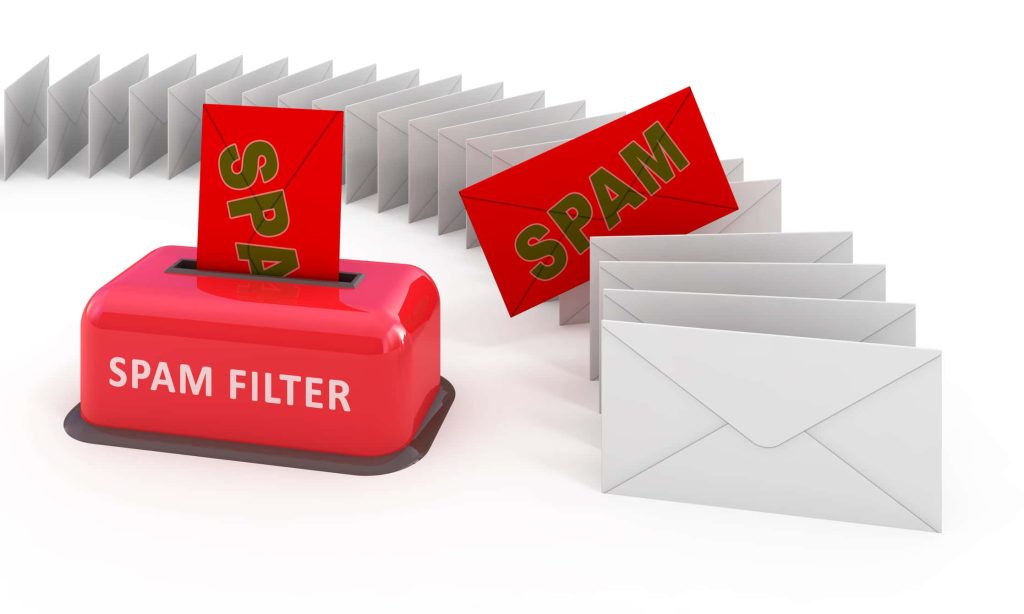
Table of Contents
Spam filters in hosting are tools and software designed to detect and block unwanted or unsolicited emails (spam) from reaching your inbox. These filters are particularly important for maintaining email security, reducing clutter, and ensuring efficient communication. Spam filters work by analyzing incoming email messages and identifying specific patterns, keywords, or behaviors commonly associated with spam.
Key Features:
- Keyword and Content Filtering: Scans email content for certain keywords, phrases, or patterns commonly used in spam messages, like “free,” “prize,” or “urgent.”
- Sender Verification: Checks the sender’s information and reputation to determine if the sender is a known source of spam. Often uses techniques like SPF (Sender Policy Framework), DKIM (DomainKeys Identified Mail), and DMARC (Domain-based Message Authentication).
- Blacklist and Whitelist Filtering: Uses lists of trusted (whitelisted) and untrusted (blacklisted) email addresses or domains. Emails from blacklisted sources are blocked automatically.
- Behavioral Analysis: Analyzes the behavior of the email (e.g., frequency of sending, response requests) to detect unusual patterns that are common with spam.
- Attachment and Link Scanning: Scans email attachments and links for malware, viruses, or phishing attempts.
Types of Spam Filters:
- Server-Side Filters:
- These filters are set up at the server level by the hosting provider’s control panel.
- They scan and block spam emails before they reach the recipient’s inbox.
- Common tools include SpamAssassin, MailScanner, and SpamExperts.
- Client-Side Filters:
- These filters work on the recipient’s device or email client (such as Outlook, Gmail, or Thunderbird).
- They provide an additional layer of spam filtering beyond server-side filters.
- Client-side filters can often be customized by the user to improve spam detection.
- Bayesian Filters:
- These filters learn from user input and analyze patterns over time, using statistical methods to determine the likelihood of an email being spam.
- They are highly customizable and improve accuracy as they are trained with more data.
- Challenge-Response Filters:
- This type of filter automatically sends a response to unknown senders, requiring them to complete a CAPTCHA or similar challenge to verify they are legitimate.
- This helps block automated spam messages from bots.
Benefits of Spam Filters in Hosting:
- Enhanced Security: Protects against phishing, malware, and other malicious threats that can be delivered through spam emails.
- Reduced Clutter: Keeps unwanted messages out of your inbox, allowing you to focus on legitimate emails.
- Increased Server Performance: Blocks spam at the server level, reducing the load on email servers and improving performance.
- Professionalism: Helps maintain a clean inbox for business emails, ensuring professional and efficient communication.
Why do you need hosted spam filtering?
Spam comes in many shapes and forms. Ever heard the one about the super-wealthy Nigerian prince that wants to send you hundreds of millions, and you just need to take care of some minor transaction fees? As funny as it sounds, a 2019 survey among Americans recorded over $70,000 are still lost yearly to this evergreen scam.
Digging deeper, there are plenty of other reasons to opt-in for a hosted spam filtering service.
Imagine you run a company employing 100 people. Each of them receives an average of five spam messages a day. It takes them 4-5 seconds to determine if the email is legitimate and delete it if not.
Even if they remove all messages in bulk, that would still be over 2,400 minutes per year. So, you are losing more than 10 hours in productivity yearly just because of some pesky emails.
Customizing Spam Filters:
Many hosting providers allow users to configure spam filters to meet their specific needs. Some customization options include:
- Setting up custom rules or blacklists/whitelists.
- Adjusting the spam sensitivity level (e.g., strict, moderate, or lenient).
- Creating rules for specific keywords, email addresses, or domains.
Limitations of Spam Filters:
- False Positives: Legitimate emails can sometimes be marked as spam, so users may need to check their spam or junk folder occasionally.
- Resource-Intensive: Advanced filtering can use up server resources, which may slow down email processing for some users.
- Continual Adjustment: Spammers constantly change tactics, so filters need regular updates to remain effective.
In summary, spam filters are essential tools in hosting that provide security, protect against malicious content, and keep inboxes organized by blocking unwanted messages. Hosting providers typically offer these as part of email hosting services to maintain a secure and professional environment for their users.